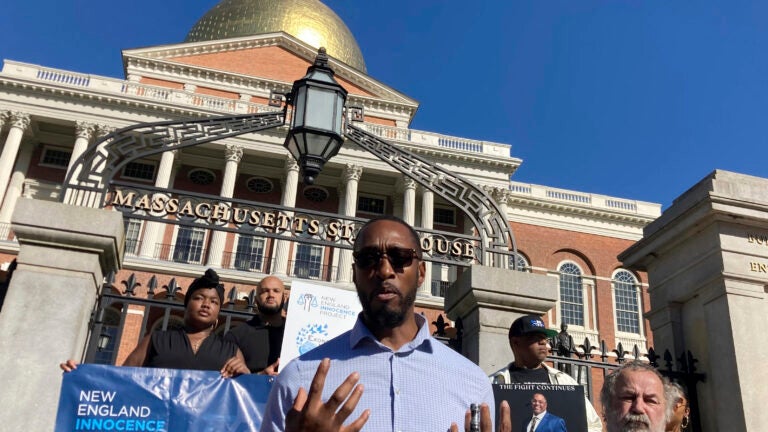Extra News Alerts
Get breaking updates as they happen.

BOSTON (AP) — Massachusetts residents who have been freed after a wrongful conviction are pressing lawmakers to overhaul what they describe as the state’s inadequate laws addressing compensation for those who have been unjustly imprisoned.
The bills would take a series of steps including lifting the state’s $1 million cap on compensation for those who have wrongfully experienced significant periods of incarceration and providing an immediate $5,000 in assistance upon their release from prison.
The bills would also clarify that state services can be provided in addition to financial compensation and that compensation can be provided for people who can prove their innocence, even if their convictions were vacated on other grounds.
Among those pressing for the changes is Sean Ellis, a 49-year-old Boston man who spent more than 20 years in prison for the 1993 killing of a police officer before his murder conviction was overturned.
Ellis is now director of the Exoneree Network, an initiative funded by the New England Innocence Project to support the practical, emotional, and spiritual reentry needs of exonerees.
“These bills are so important because when I came home eight and a half years ago almost, I came home to nothing,” he said. “If it wasn’t for the kindness of family and friends I would have been left with nothing.”
Dennis Maher, who spent more than 19 years behind bars before being exonerated through the use of DNA, has been out of prison for 20 years.
“In 2003 there was nothing. There were no bills. No help. No anything,” the 63-year-old Billerica resident said. “I had to go learn what to do by myself — things like walking down the street, listening to cars. I hadn’t heard a car drive by in nearly 20 years.”
Activists are pushing for the bills to be favorably reported out of the Legislature’s Judiciary Committee so they can ultimately get to the floor of the Massachusetts House and Senate for a vote.
Get breaking updates as they happen.
Stay up to date with everything Boston. Receive the latest news and breaking updates, straight from our newsroom to your inbox.
Conversation
This discussion has ended. Please join elsewhere on Boston.com